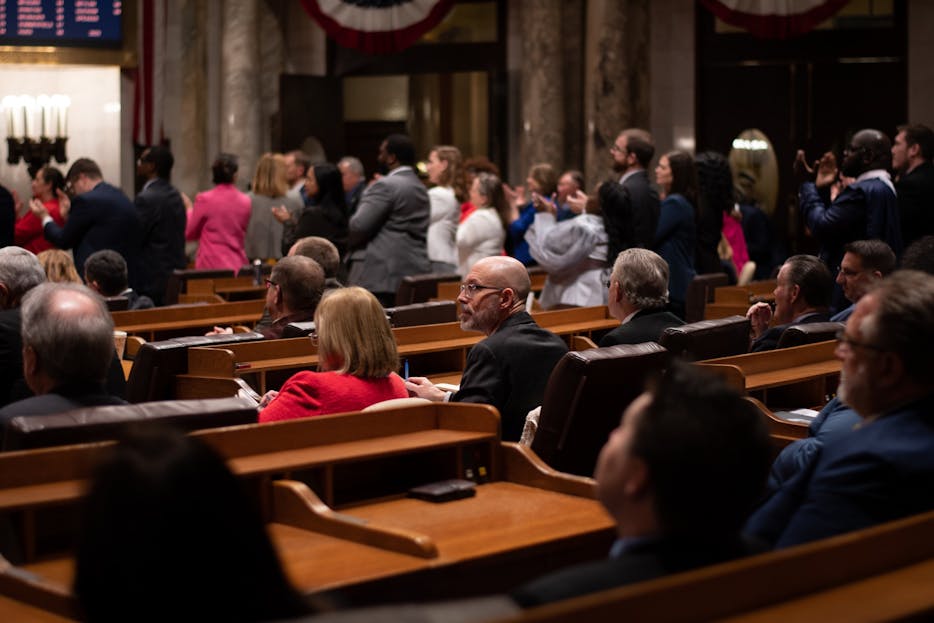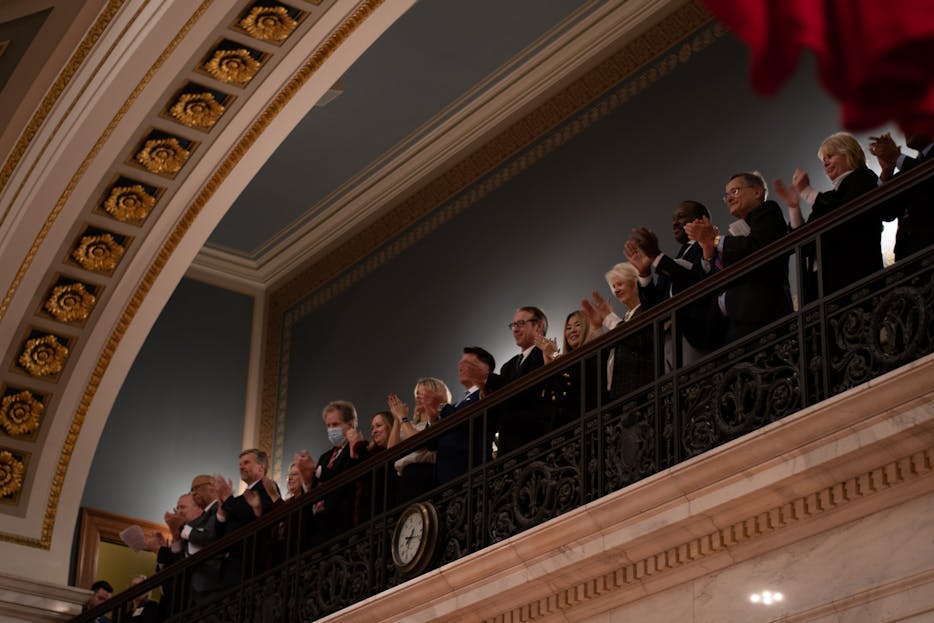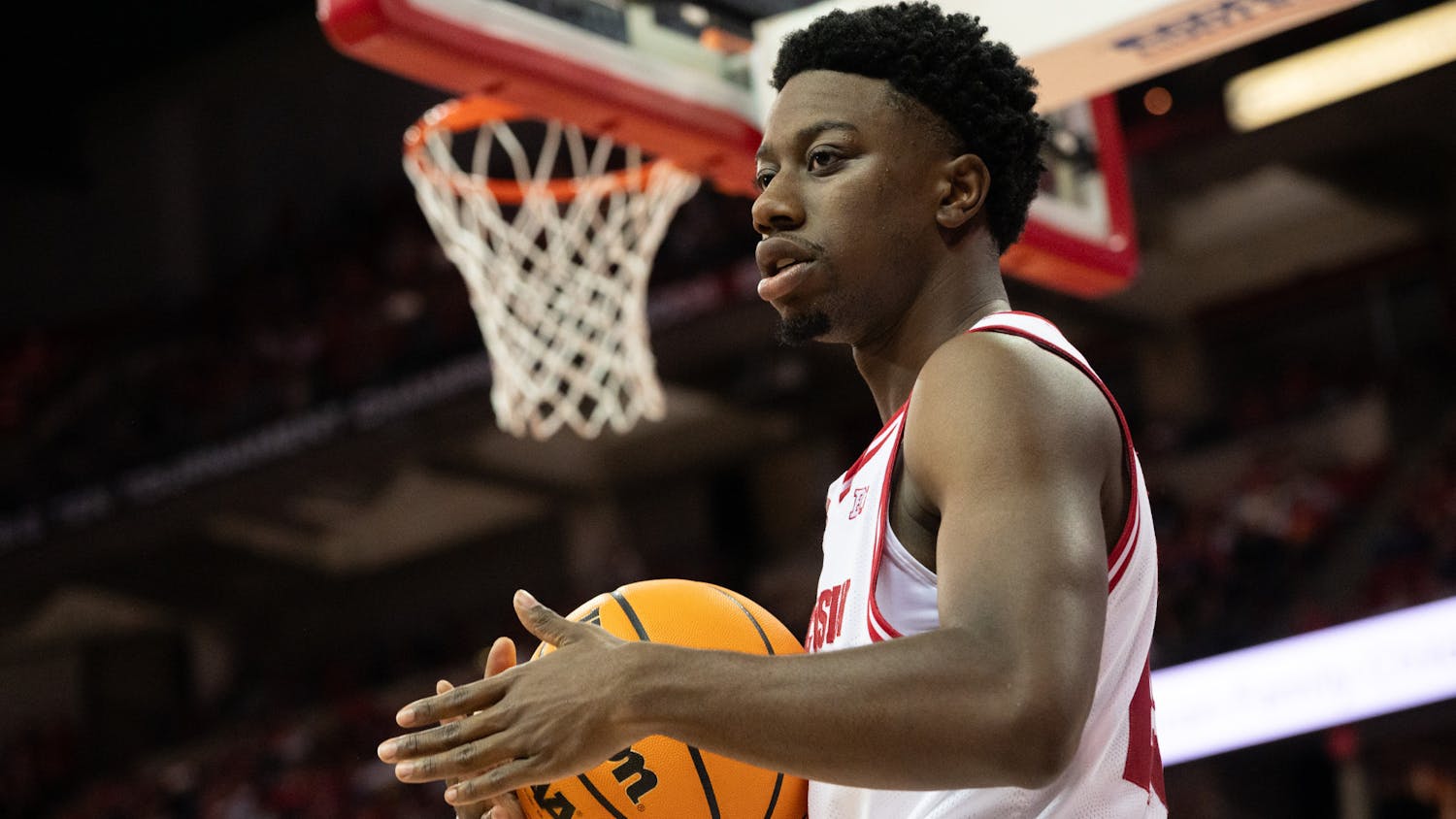Gov. Tony Evers shared details from his “breakthrough budget” Wednesday evening to Wisconsin lawmakers gathered at the Capitol for his third biennial budget address.
Mental health funding, a $2.6 billion investment for K-12 education, universal free school meals and the expansion and restoration of affordable housing were among the governor's proposals in his 2023-25 executive budget.
The next step for Wisconsin’s state budget is the Legislature’s Joint Finance Committee (JFC), where Republicans will have the ability to adjust — or rather, scratch and recraft — the budget proposal. After the Assembly and Senate vote on JFC’s proposal, the budget will return to Evers, who will have the ability to make line-item vetoes before the budget becomes law.
After designating 2023 “The Year of Mental Health” during last month’s State of the State address, Evers reintroduced his “Get Kids Ahead” initiative, a program providing school mental health services he first unveiled during his 2022 State of the State.
During Wednesday’s speech, he called on the Legislature to approve $2.6 billion in public K-12 school funding, including more than $270 million to make his “Get Kids Ahead” initiative a permanent program.
“Our kids can only achieve their full and best potential when they can bring their full and best selves to the classroom,” Evers said. “If we want to have a chance at improving our kids’ outcomes, then we have to shorten the odds.”
Evers cited mental health statistics from the CDC’s 2021 Youth Risk Behavior Survey. Released Monday, the survey found more than 40% of high school students felt so sad or hopeless nearly every day for at least two weeks in a row that they stopped engaging in their usual activities. One in five students seriously considered attempting suicide — a rate that was higher for teen girls.
“Enough will be enough when these are not the statistics we’re reading about our kids in the news,” Evers said. “It’s time to get serious.”

Gov. Tony Evers received a lukewarm response from Republicans during his biennial budget address on Feb. 15, 2022, with many staying seated as he announced funding boosts for public education and family leave, among other topics.
Within his budget, Evers also has plans to fully fund universal school lunches and breakfasts so “every kid can be focused on their school work and not when or whether they’ll eat next.” The proposal calls for $120.2 million in state funding by 2025, according to the governor’s office.
Through his $150 million Affordable Workforce Housing program, Evers seeks to invest in local communities to maintain and develop housing for the workforce.
“We need to make sure Wisconsin workers and families — and the talent we hope to recruit — have housing in our communities,” Evers said.
Additionally, the governor proposed investing $200 million into renovating and restoring already existing housing properties.
The governor also focused on the topic of medical leave, something he said is too often inaccessible due to varying circumstances.
His $240 million state-funded program would provide most of Wisconsin’s private-sector workers with 12 months of paid family and medical leave. Eligible uses would include caring for a new child, medical quarantine and aftermath of domestic violence and sexual abuse, among other circumstances.
In attendance at Wednesday’s address were the family members of Kenosha North High School student Kai Lermer, a 16-year-old who lost his life in April 2019 due to an undiagnosed heart condition called Wolff-Parkinson-White Syndrome.
The governor announced more than $4 million for a pilot program to prevent cardiac-related health incidents like the one Lermer suffered from through an EKG screening program.
“Folks, this investment into local public health will save kids’ lives just like Kai’s. Let’s get this done,” Evers said.

Spectators look on as Gov. Tony Evers delivers his biennial budget address to lawmakers gathered in the Wisconsin Assembly chambers on Feb. 15, 2022.
Republicans see ‘liberal wish list’
In closing statements, Evers encouraged his supporters and opponents to work with him and “dispose of the notion that the priorities in this budget are somehow extreme or far-fetched.”
“This is a budget about solutions, not wish lists. This is a budget about pragmatism, not politics,” Evers said. “This is a budget about getting back to basics and doing the right thing.”
However, a post-budget address press conference held by Republicans made Evers’ hopes seem less than likely.
“I’ve seen this movie before. It’s the same movie we saw two years ago, produced and directed by Tony Evers. Deficit spending and a liberal wish list,” said Joint Finance Committee co-chair Sen. Howard Marklein (R-Spring Green).
Assembly Speaker Robin Vos (R-Rochester) said the budget would be “the largest increase in spending in the history of the state of Wisconsin” and was an “unrealistic solution” to Wisconsin’s problems.

There were some potential areas of agreement between Evers and Republicans in Wednesday’s address, including a proposal to send 20% of state sales tax revenue back to local communities as shared revenue. The money would give a boost to local municipalities that have struggled to fund essential services like EMS, fire and law enforcement.
Evers’ proposal is similar to a plan Wisconsin Republicans have publicly considered since December, according to the Wisconsin Examiner.
While Vos admitted Wednesday there were “some areas” of common ground in Evers’ budget, he said the solutions would look “dramatically different.”
One such area is tax policy. Though both Evers and Republicans want to return some of Wisconsin’s record-high $7.1 billion budget surplus back to state residents via tax cuts, their proposals differ.
Evers said Wednesday he believes tax cuts for the middle class will provide “real, sustainable relief.” He proposed $1.2 billion dollars for a 10% middle class tax cut to “keep income tax low now and into the future.”
The governor said his new tax plan will “give families a little extra breathing room” and maintain Wisconsin’s post-pandemic economic momentum. Wisconsin’s unemployment rate currently sits at 3.2% after the state added 60,000 jobs last year, according to the latest data from the Wisconsin Department of Workforce Development.
Senate Republicans instead want a flat income tax rate of 3.25% across all tax brackets, a proposal Evers has previously labeled a “non-starter.”






